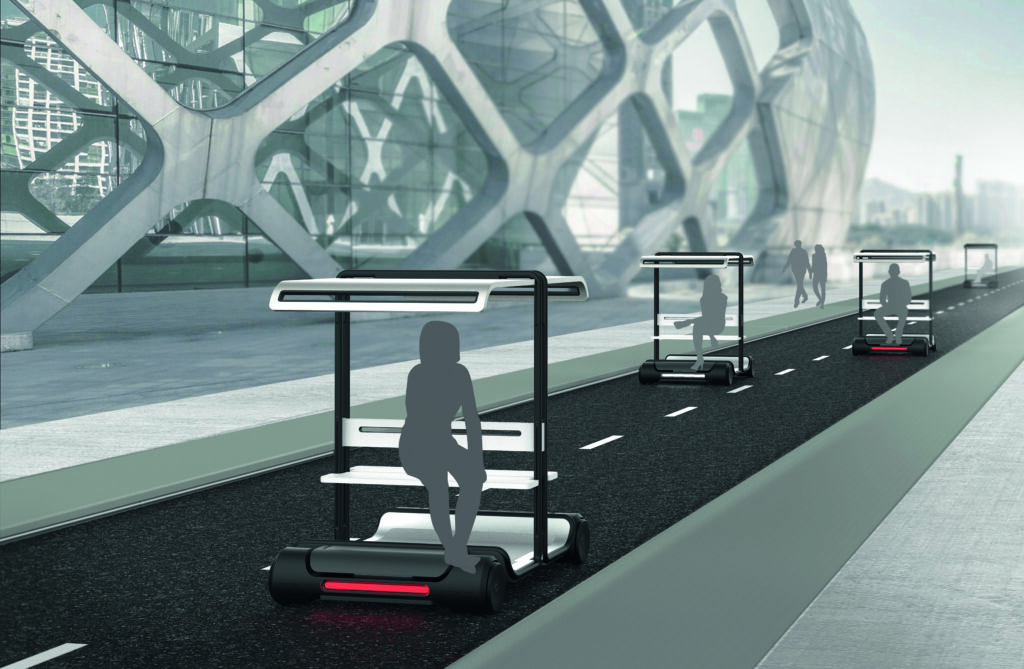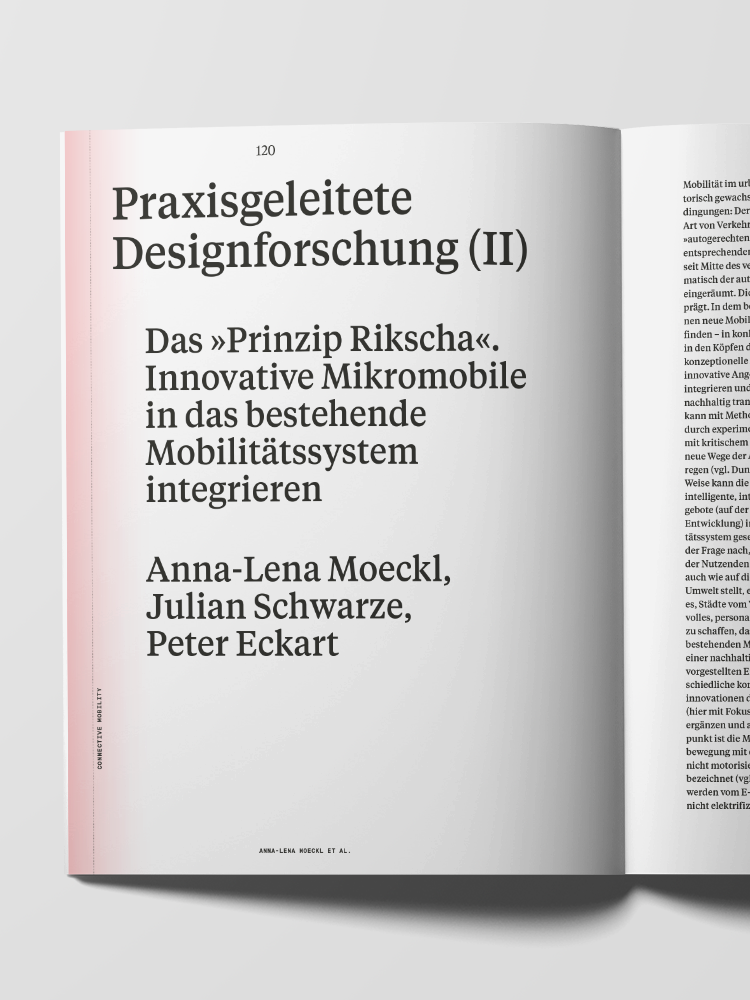
The rickshaw principle
In India and other primarily Asian countries, there is a seemingly perfectly functioning principle for public transport based on so-called motorised rickshaws (also called TukTuk in Thai language). They are immediate available, usually in less than a minute via an app or by signalling at the roadside. They are clearly recognizable, distributed throughout the city and used mainly for distances under 10 km. In India, about 1.5 million electric rickshaws operate today, more vehicles than in any other country with an extremely efficient CO2 balance. A rickshaw can be used for transporting people or goods (or parcels). In this semester project, we took the principle of the rickshaw with electric drive as a starting point to design vehicles and associated new mobility systems for our living space. TUKTUK_NOW analysed the transport system of the three-wheelers from Asia and transferred it to European or German needs. What would such a mobility concept look like if it was transferred to German cities? Is that even possible? Designs were developed for the rickshaw itself (for the transport of people or goods), for the rickshaw stations/hubs or designs of the entire system and service offer (similar to taxis) – Mobility as a Service.
Type of project • Student project
Supervisors • Prof. Peter Eckart, Dipl.-Des. Anna-Lena Moeckl, Dipl.-Des. Julian Schwarze
Participants • Oleg Babitsch, Malú Borgny Coors, Teresa Herzog, Greta Hohmann, Amelie Ikas, Thomas Jäger, Paulina Kämmerer, Kevin Lai, Philip Landgrebe, Xuan Liu, Lukas Loscher, Rebeca Messere Ramos, Ken Rodenwaldt, Franca Tasch, Jonas Theisinger
Status • completed
Duration • 04/2019 – 07/2019
Cooperation • Andreas Grzesiek; Dr. Steffen Reichert (Mercedes-Benz Advanced Digital Design/Sindelfingen); Markus Mau und Aeneas Stankowski (Studio Same / Berlin)
